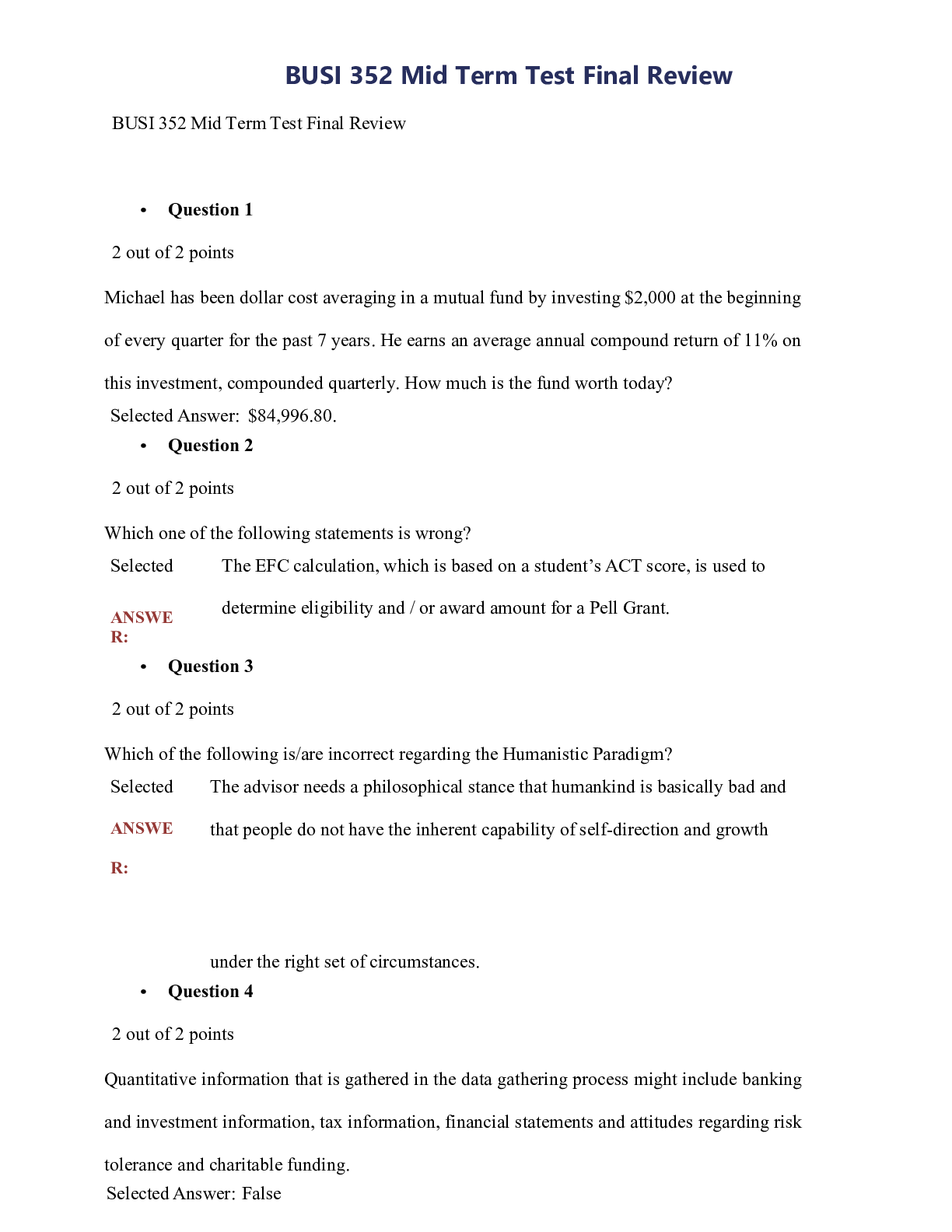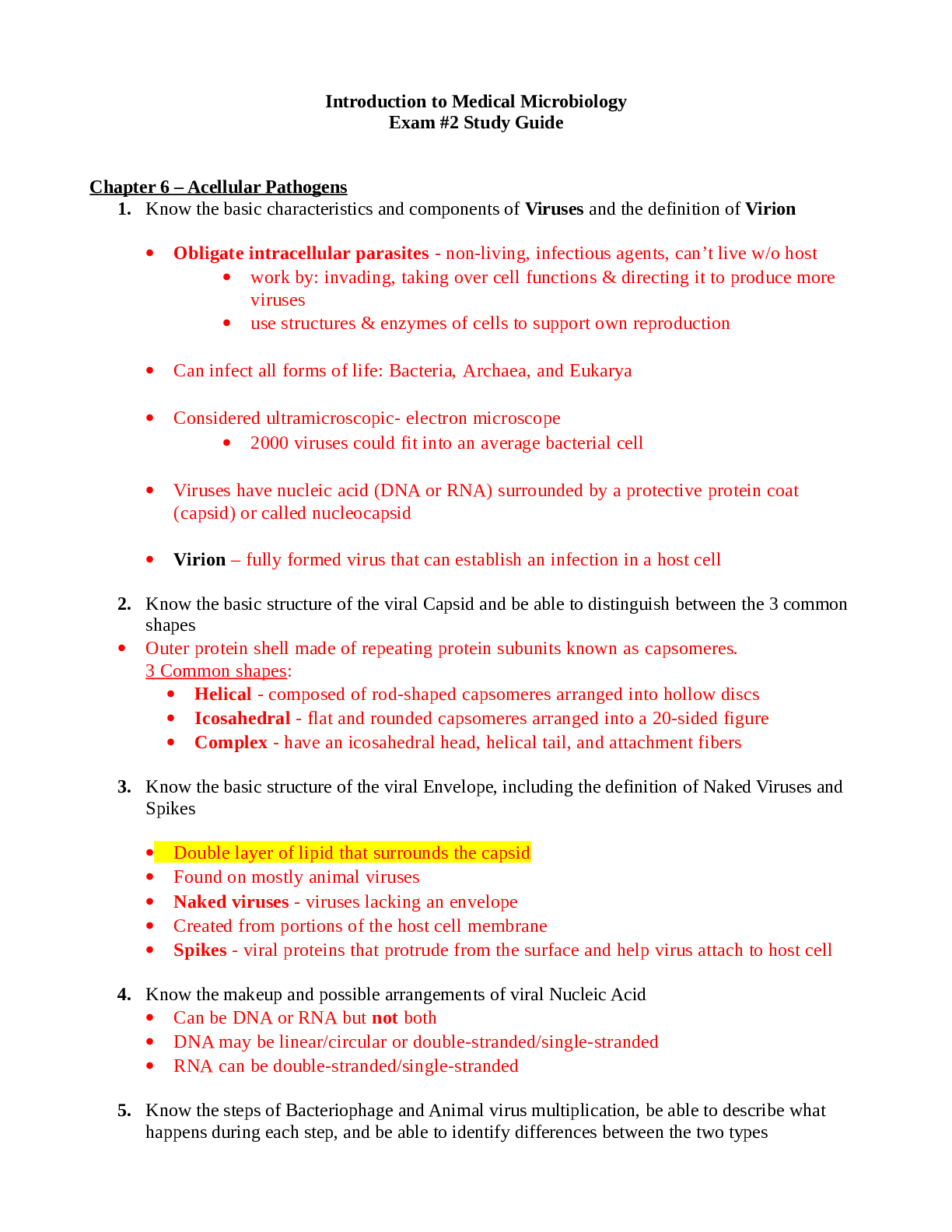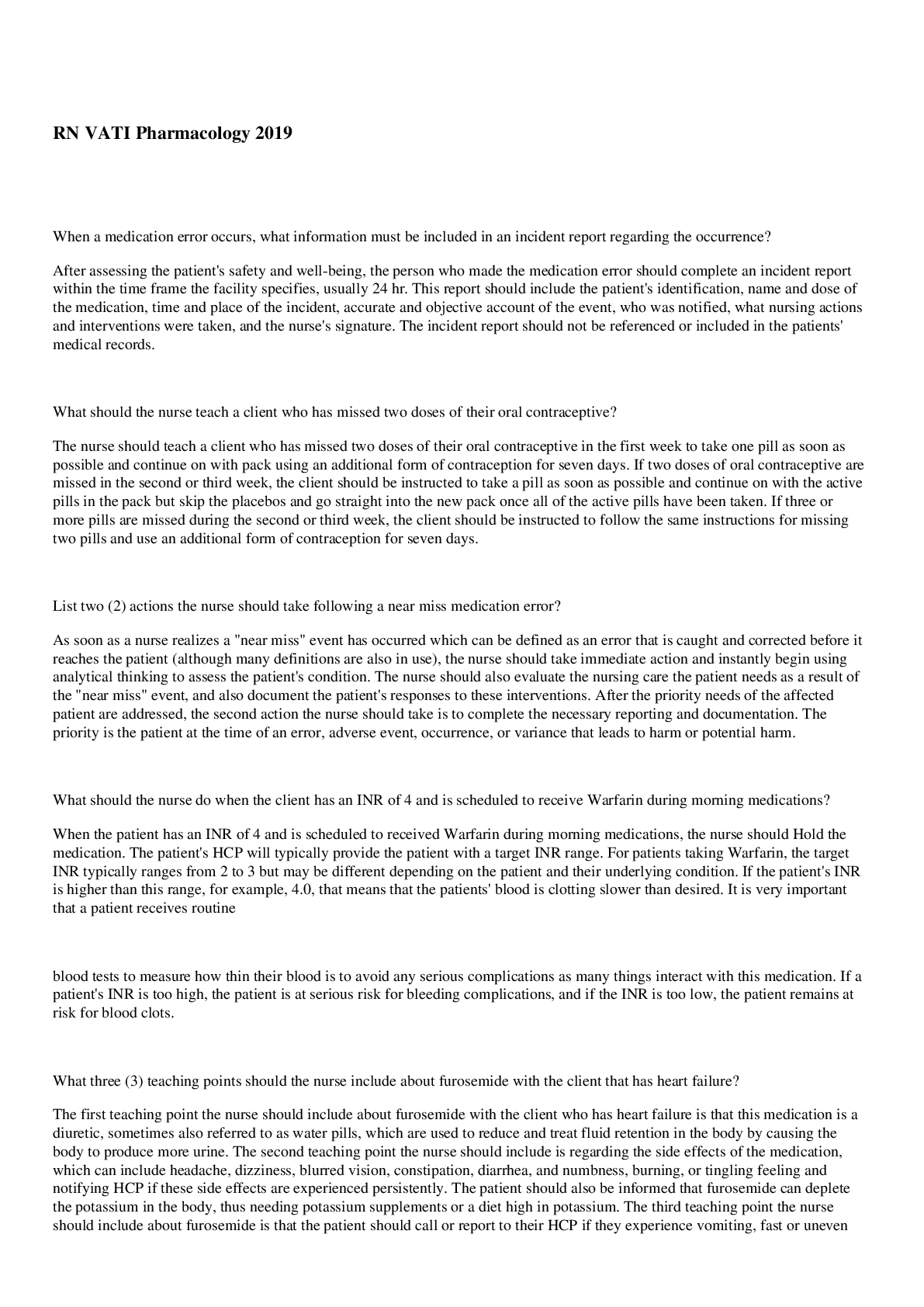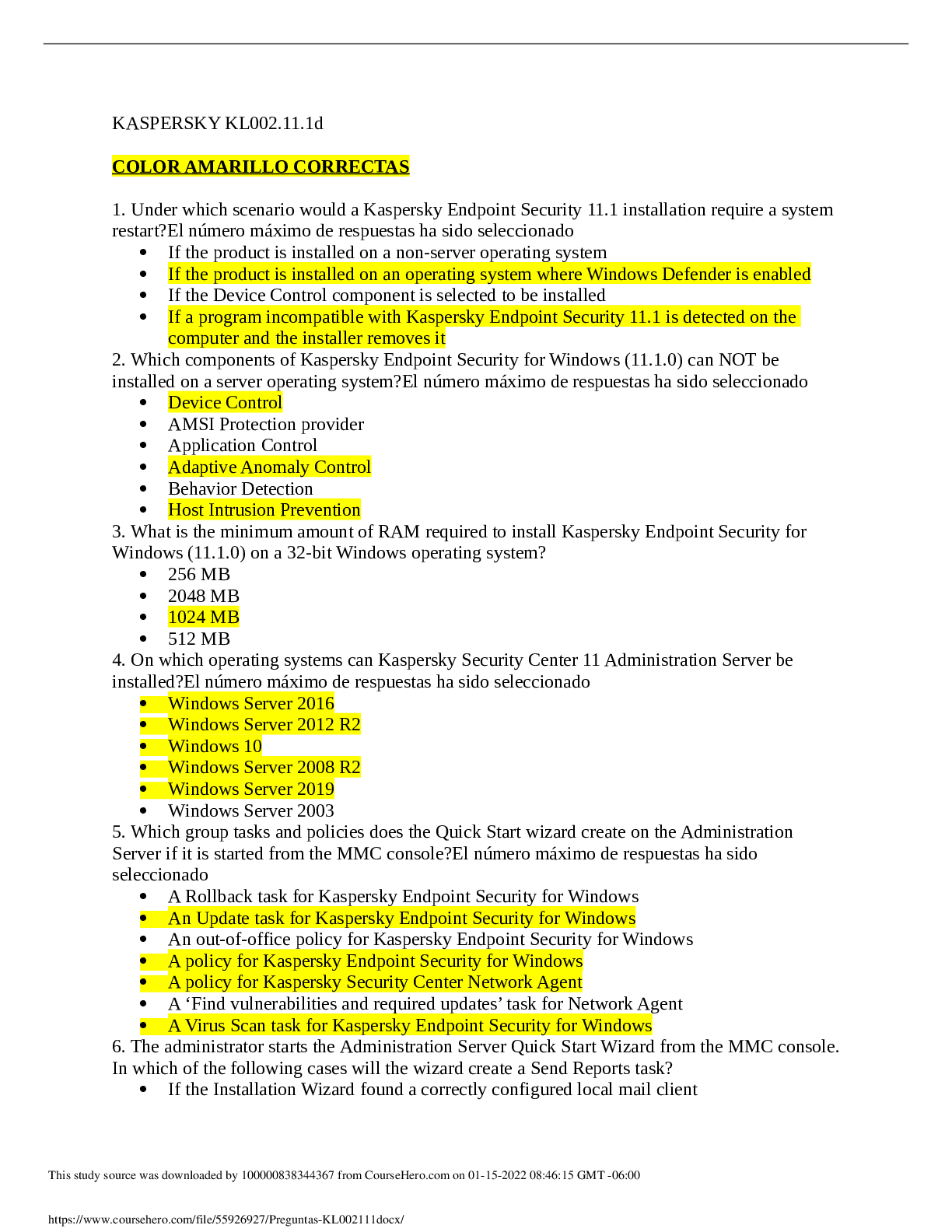Health Care > QUESTIONS & ANSWERS > Patient Safety: IHI PS 103 Human Factors & Safety Questions and Answers Graded A+ (All)
Patient Safety: IHI PS 103 Human Factors & Safety Questions and Answers Graded A+
Document Content and Description Below
Patient Safety: IHI PS 103 Human Factors & Safety Questions and Answers Graded A+ Human factors is the study of: (A) Interactions among humans (B) Interactions between humans and machines (C) ... Interactions between humans and the environment (D) All of the above -✔✔ D - Human factors is an established science that uses many disciplines to understand how people perform under different circumstances. This engineering discipline deals with the interface of people, equipment, and the environment. Which of the following is an example of unconscious processing by the brain? (A) Optical illusions (B) Skipping a step on a checklist to save time (C) Mistaking one drug for another because of look-alike packages (D) A and C -✔✔ D - Optical illusions and mistakes involving look-alike drugs and names reflect unconscious processing by the human brain. Unconscious processing is a fundamental part of human cognition that can lead to human error even when people are trying their best. Safe systems take these known characteristics of human cognition into account to help people do things the right way. When attempting to decrease the risk of error, it's important to use human factors principles because: (A) If you understand the factors that cause people to make mistakes, you can hire safer providers. (B) If you understand human factors principles, you can ensure your system is perfectly safe. (C) If you understand the factors that affect human performance on critical tasks, you can design a safer system. (D) If you understand human factors principles, you can always justify using the latest technology at the bedside. -✔✔ C - Understanding how factors that affect human performance (such as fatigue, stress, and poor lighting) affect work and detract from one's ability to execute a safety-critical task (such as administering a medication, filling a prescription, or writing an order) can help you design processes and systems in ways that make them safer. Which of the following types of errors is associated with controlled thinking? (A) Errors of memory storage (B) Errors of planning (C) Skill-based errors (D) A and C -✔✔ B - Controlled thinking is when we consciously, often slowly, solve problems and make decisions. This is when errors of planning can occur, also known as "mistakes." In comparison, automatic thinking is rapid, effortless thought, during which we are vulnerable to what experts call skill-based errors, which include errors of execution or memory storage. At the end of a double shift, an experienced nurse with an excellent track record gives a medication to the wrong patient. Based on human factors principles, what would you guess was the biggest contributor to this error? (A) The nurse's training was out-of-date. (B) The nurse was prone to error because she was tired. (C) The nurse had become complacent and stopped trying hard. (D) The nurse deliberately ignored protocol. -✔✔ B - The nurse was most likely fatigued after a double shift, which made her prone to error. We cannot sustain performance by merely trying hard and paying attention, and fatigue can affect performance no matter how hard you try or how excellent your training may be. When you are fatigued, you need processes that help prevent you from making an error, or mitigate the effects of an error if you do make one. Which of the following is a basic strategy for minimizing the opportunity for error in a process? (A) Reducing reliance on technology (B) Standardizing how the process is completed (C) Trying harder to perform the process correctly (D) A and C -✔✔ B - The science of human factors has helped us identify many design principles that can help prevent errors; standardizing processes is one such principle. Although we shouldn't be overly reliant on technology, technology can often be used to help prevent errors. Simply trying harder is not an effective error-prevention tactic. Which of the following statements about redundancies within processes is always true? (A) They are needlessly inefficient. (B) They remove the opportunity for error. (C) They require two people to do the work of one. (D) None of the above -✔✔ D - None of these statements is always true. In high-risk situations — such as the medication administration process — you may need redundancy to ensure safety. Although a typical redundancy involves one person checking the work of another, you can also use technology to "double check." It's important to keep in mind that it is possible for two people to make the same mistake and double checks can still allow the opportunity for error. Use the following scenario to answer questions 3-5: Your hospital is implementing an electronic health record (EHR) and is teaching all staff how to use it. As you go through the EHR training, you notice that it takes five clicks to bring up the vital signs for a patient. In the past, when you wanted to see a patient's vital signs, you could simply look at the sheet of paper clipped onto the end of the bed. Which of the following likely needs to be improved about the new process to review vital signs? (A) It needs to be simplified. (B) It needs to be standardized. (C) It needs redundancies added. (D) It needs to avoid reliance on memory. -✔✔ A - A process that has a lot of steps — some of which seem unnecessary — is a prime target for simplification. This is especially true for commonly used processes, such as reviewing and recording vital signs. [Show More]
Last updated: 2 years ago
Preview 1 out of 8 pages
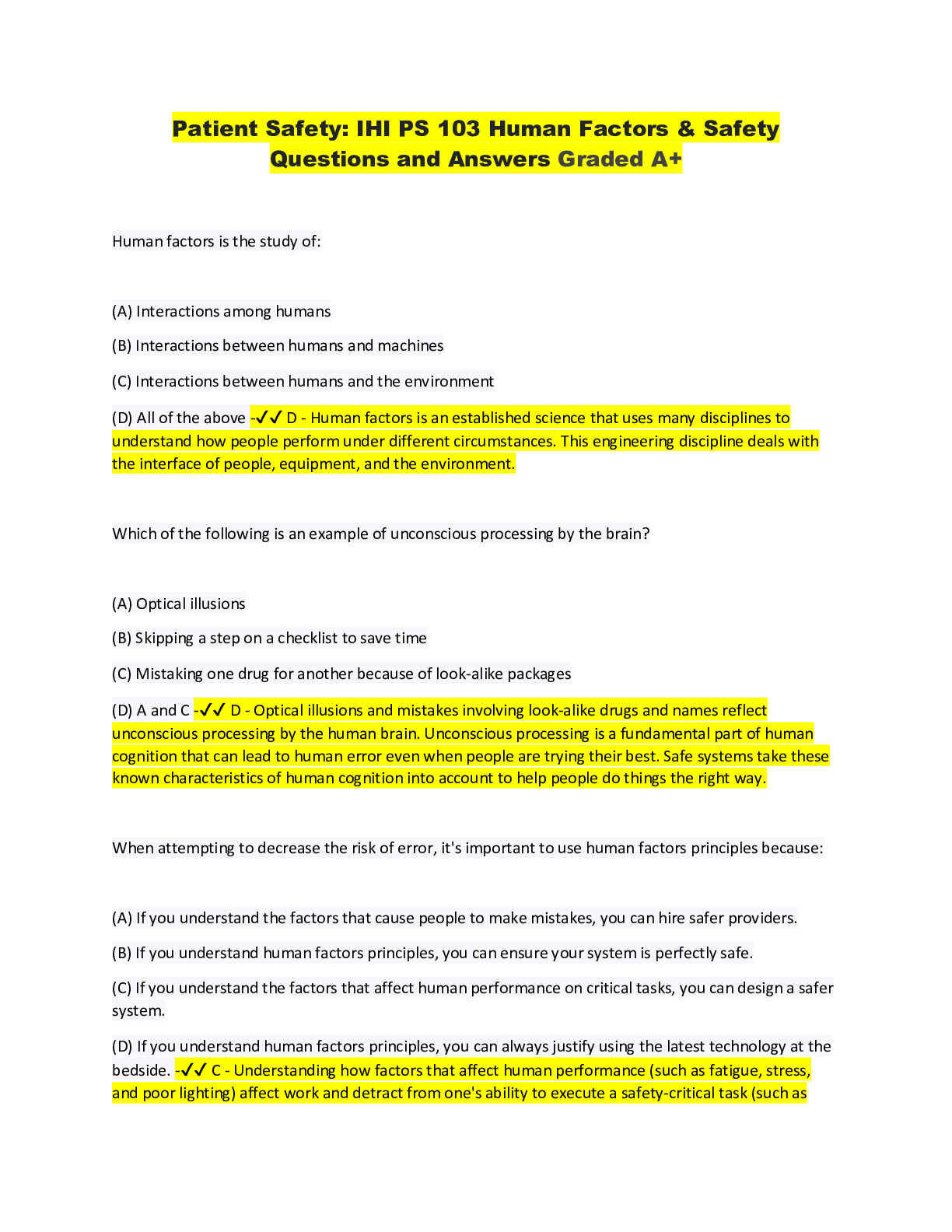
Buy this document to get the full access instantly
Instant Download Access after purchase
Buy NowInstant download
We Accept:

Reviews( 0 )
$8.00
Can't find what you want? Try our AI powered Search
Document information
Connected school, study & course
About the document
Uploaded On
Feb 02, 2023
Number of pages
8
Written in
Additional information
This document has been written for:
Uploaded
Feb 02, 2023
Downloads
0
Views
119



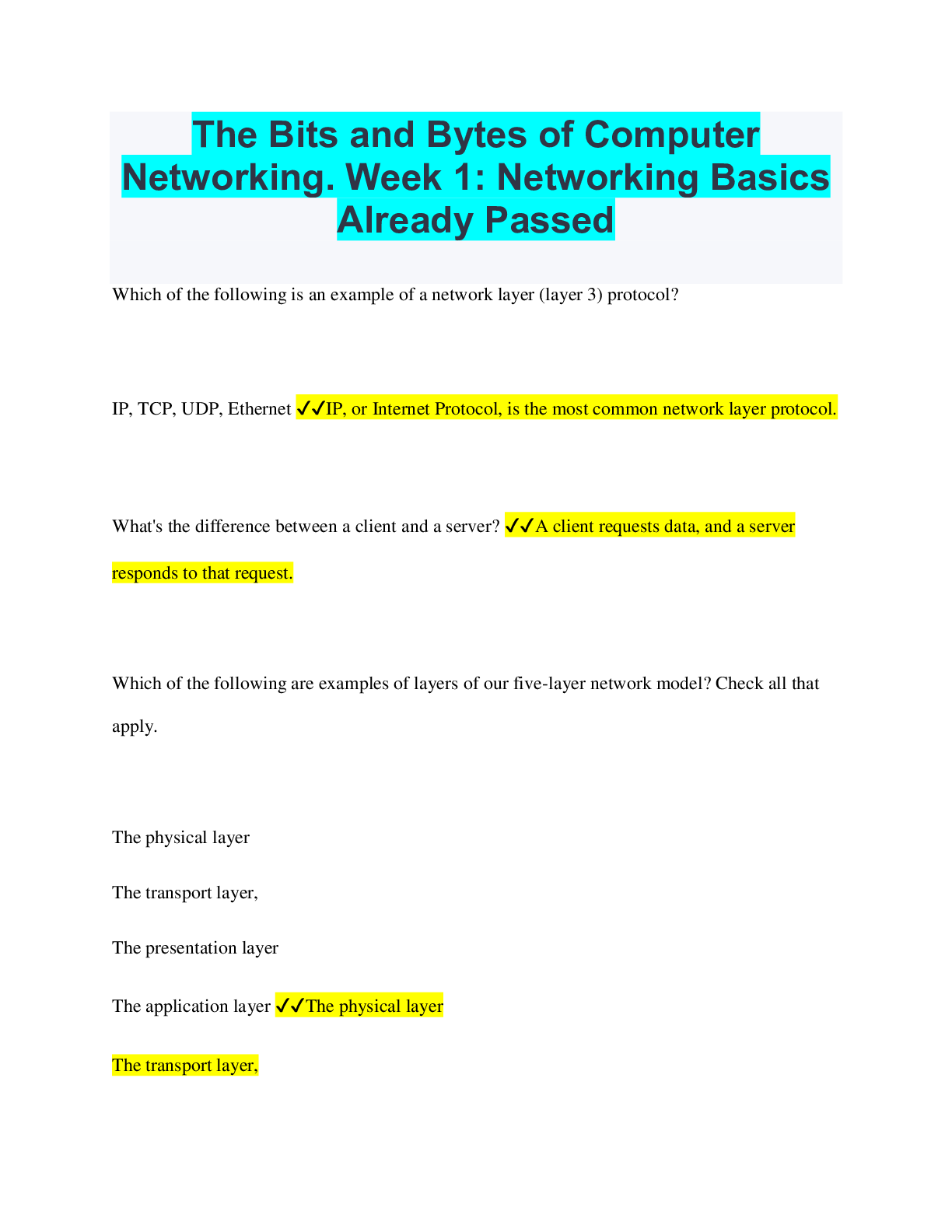
 Answered 2023.png)


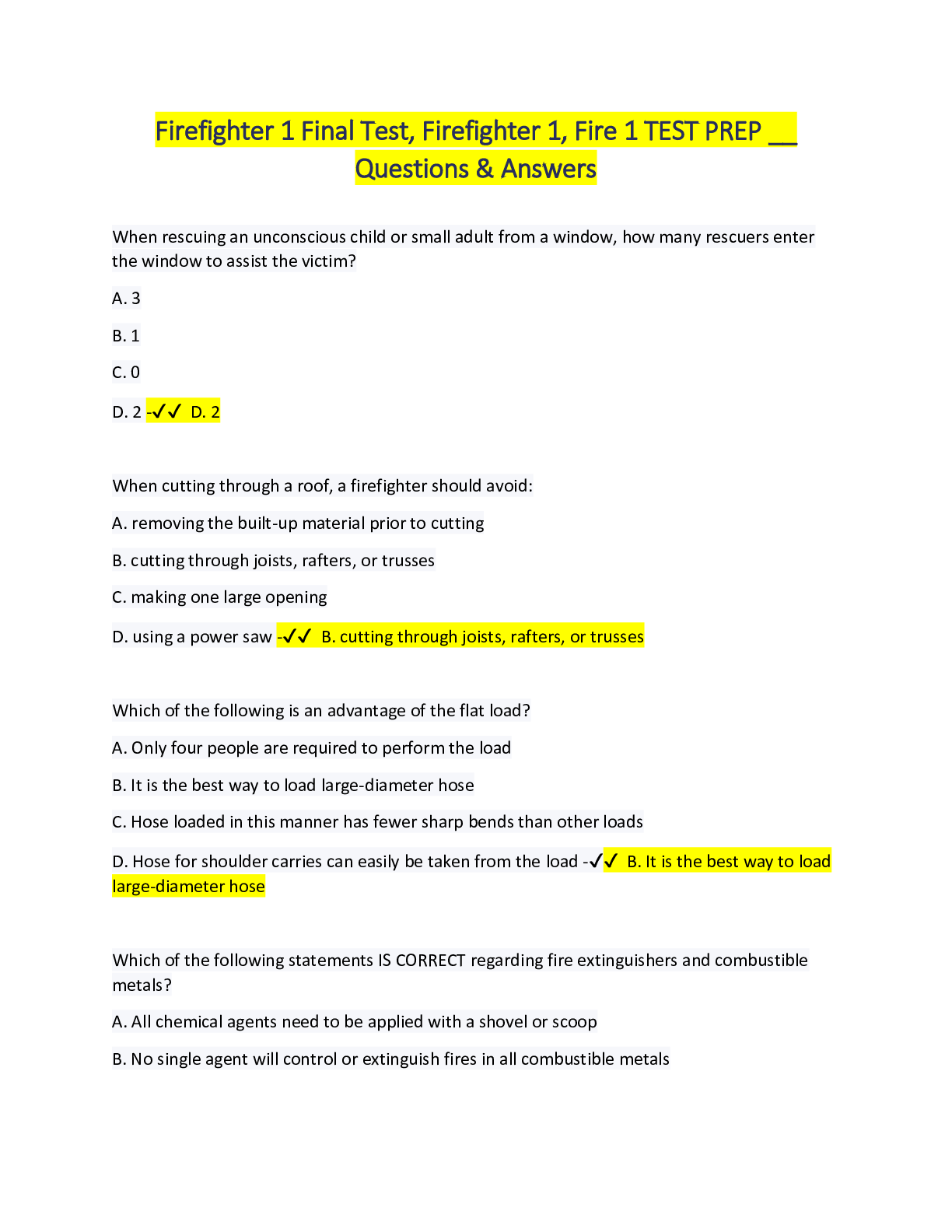
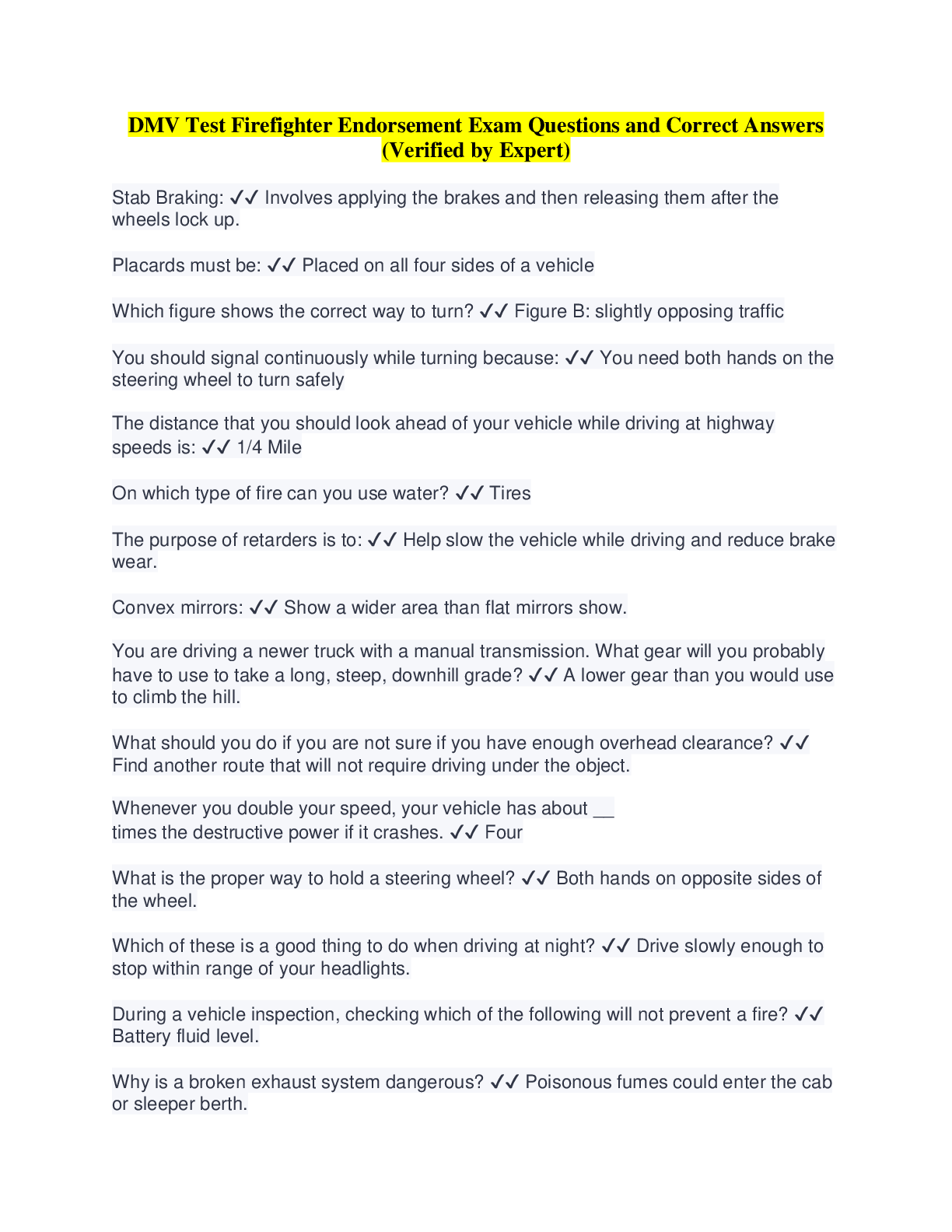


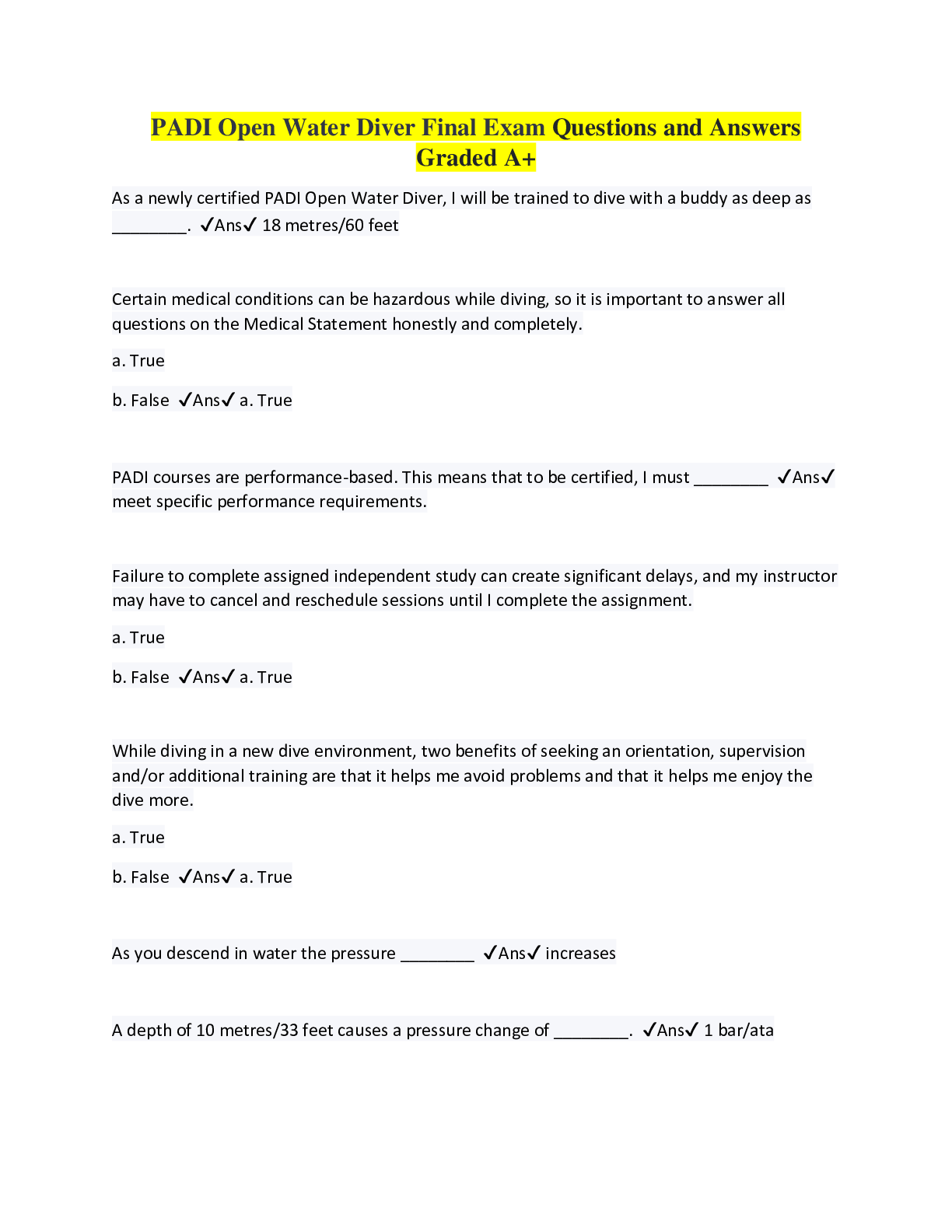


 Chamberlain College of Nursing – NUR 511 WEEK 6 Part 2.png)
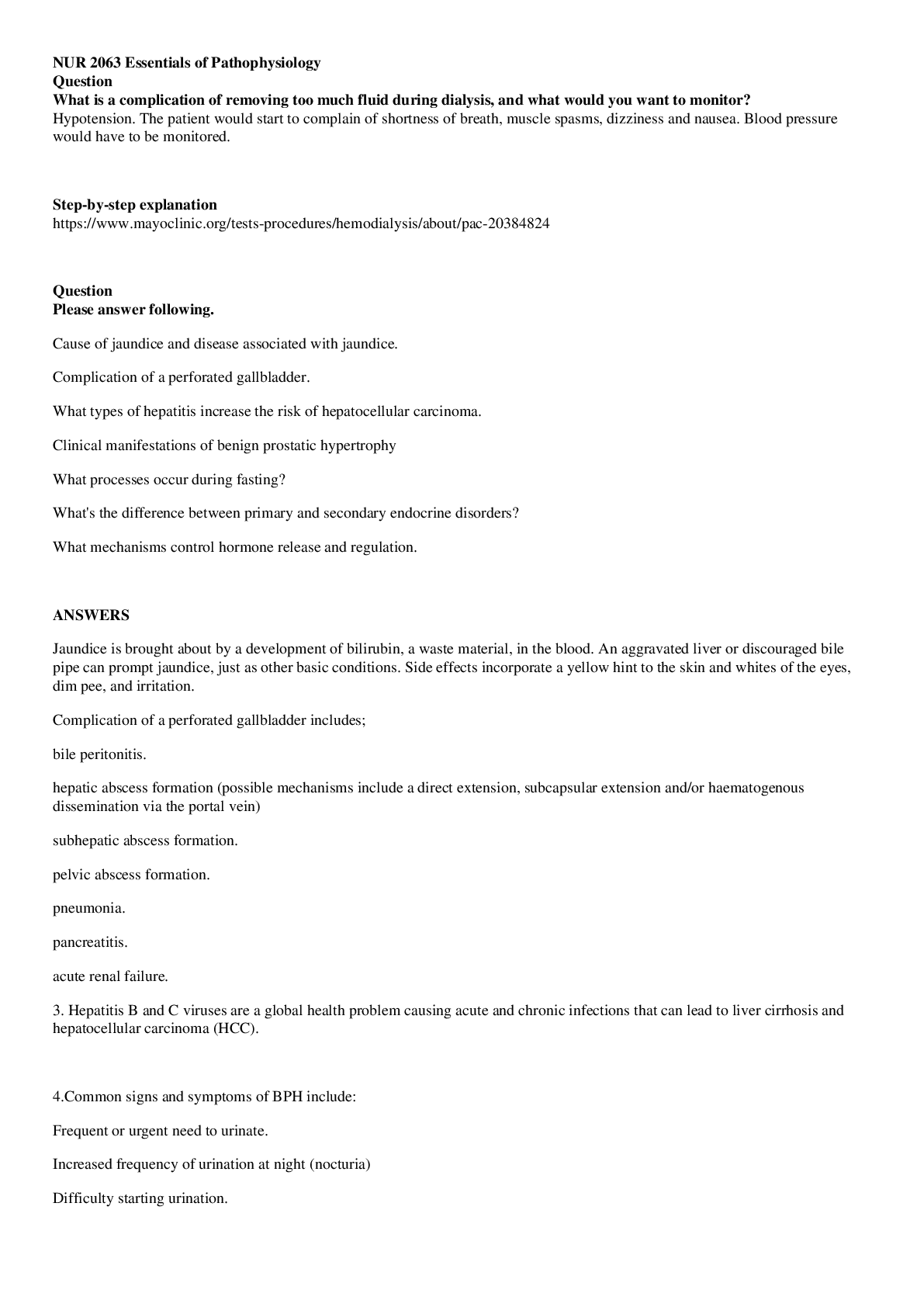
 answers.png)
 answers.png)

